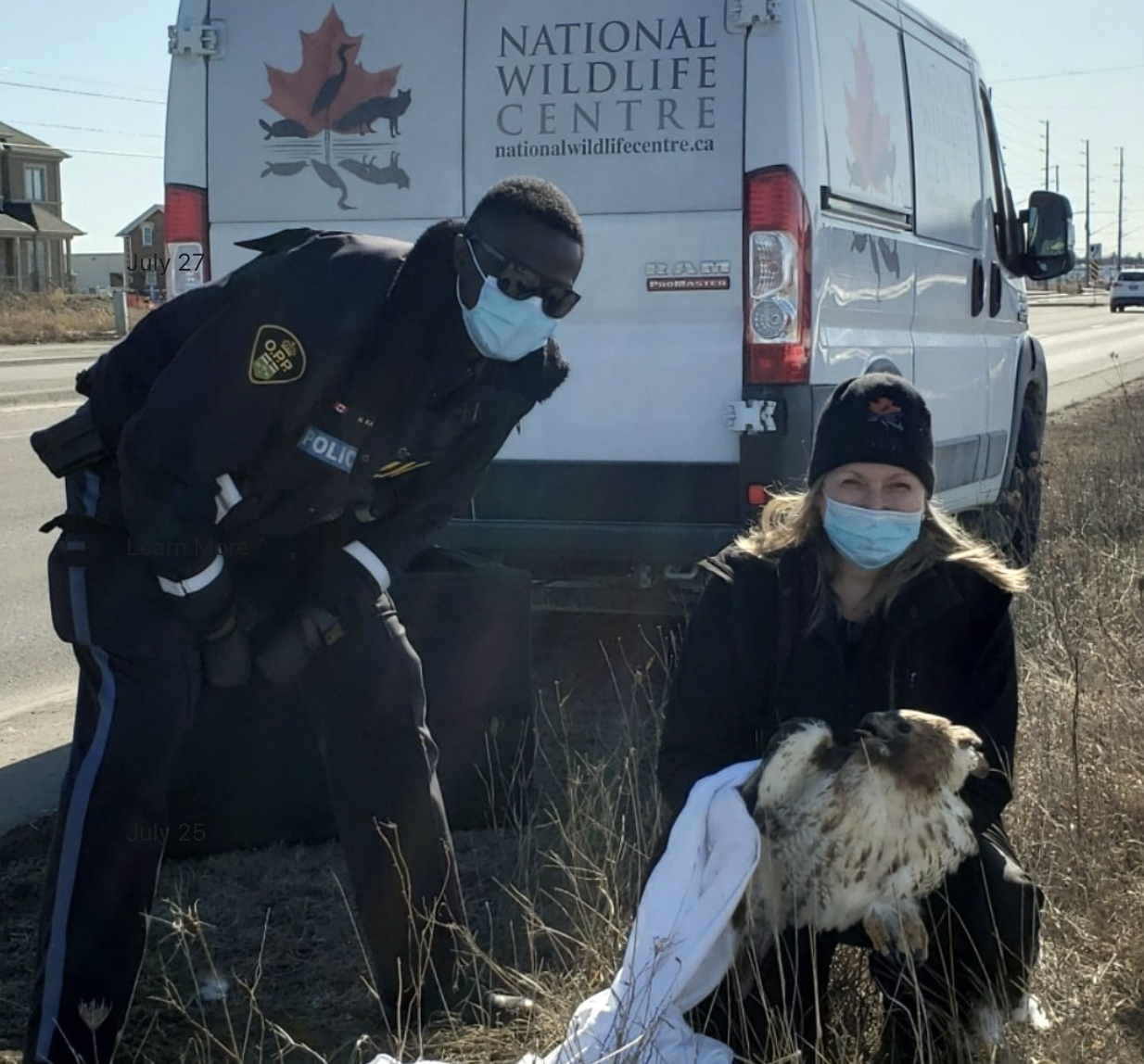Hawk-eyed officer on patrol spotted an injured red-tailed hawk in Caledon. Caledon OPP worked with National Wildlife Centre Canada to assist the injured bird, which is hopefully on the road to recovery!
On March 4, at approx. 1:18 p.m., an officer from the Caledon OPP was conducting a general patrol on Mayfield Road, when he spotted an injured hawk in the middle of the road. A passerby with the Roads Department assisted in safely moving the animal to a safer location. The officer remained on scene until help arrived.
The National Wildlife Centre attended the scene and rescued the bird. As of March 5, they report that the adult female red-tailed hawk is doing well and has been transferred to a longer-term rehabilitation centre.
A big thank you to the OPP for helping save this beautiful adult Red-tailed hawk that was hit by a vehicle. The officer stayed onsite until our rescue team was able to arrive to safely handle the bird and take it back to our hospital for a physical examination.
Dr. Sherri Cox, the Medical Director and Wildlife Veterinarian from the National Wildlife Centre, shares the following information:
“If you find a sick, injured or orphaned wild animal, contact a wildlife rehabilitator for assistance or advice. A list of wildlife rehabilitators can be found at: https://learningcompass.learnflex.net/…/WildlifeRehabil… from the Ministry of Natural Resources and Forestry (MNRF) website.”
Dr. Cox is also happy to say that the National Wildlife Centre, located in Caledon, hopes to have their new wildlife hospital and rehabilitation centre open in 2022 and will accept sick, injured and orphaned wildlife from the public. More information can be found at www.nationalwildlifecentre.ca.
The National Wildlife Centre encourages anyone who finds a sick, injured or orphaned wild animal to:
- Contact a wildlife rehabilitator right away as they can help advise whether or not that animal needs to come in for care;
- Keep dogs and cats away from the animal and limit noise;
- If the animal is injured and you are able to safely contain the animal, do not give it any food or water before speaking with a wildlife rehabilitator. Keep it in a cardboard box (or a large tote bin) in a dark, quiet place. Provide air holes for ventilation.


